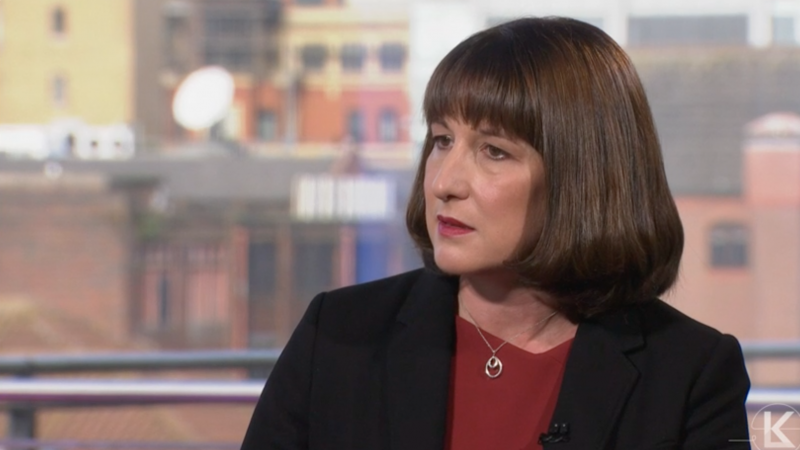
Sunday with Laura Kuenssberg
Shadow Chancellor Rachel Reeves declared that Liz Truss and Kwasi Kwarteng are doing “some mad experiment” with the UK economy, adding that it was not the idea of government borrowing that “spooked the markets” but the “scale” of the package set out in the mini-Budget.
- On the need to increase economic growth: “The only thing that I would agree with the Chancellor and the Prime Minister on is that we need to get the economy growing. The economy was growing by around 2.5% a year under the last Labour government, and growth has collapsed since then… But this idea that trickle-down economies is somehow going to deliver the 2.5% growth that we all want to see is for the birds. And the Prime Minister and Chancellor are doing some mad experiment with the UK economy and trickle-down economics. It’s failed before, and it’ll fail again.”
- On the difference between the government’s borrowing plans and Labour’s: “It was the sheer scale of the borrowing in the mini-Budget, without an Office of Budget Responsibility forecast, and the gratuitous borrowing to fund tax cuts for the wealthiest.”
- Pressed on how Labour would cover the cost of scrapping the National Insurance rise and pay for social care: “Kwasi Kwarteng when he delivered that mini-Budget said that, although they were reducing National Insurance back to where it was previously, it wouldn’t affect the budget for health and social care. That’s really important, because we know that that money is needed, and he said it would not affect the budgets for that… They’re not reducing the money for health and social care, so there’s not a black hole there to be filled.”
- On Labour’s borrowing plans: “I set out a set of fiscal rules, and I’ve said that everything in our manifesto will be fully costed and fully funded, that we would get debt down as a share of GDP. Now we are at the moment in the middle of a cost-of-living crisis, and I think everybody understands that to get us through that, as we did during Covid, some limited borrowing is needed to address the cost-of-living crisis. That’s why we’ve been saying for ages that there needed to be a package to help people with their energy bills. That’s not what spooked the markets. What spooked the markets is the scale of the package.”
- On Labour only promising to freeze energy bills for six months: “We set out a fully costed and funded plan well before the government had any plan in place… We welcome the fact that the government have come forward with their own package, and we support that support for the two-year period. The difference between us and the Conservatives is that we would fund part of that package by an extension of the windfall tax on the big profits that North Sea oil and gas companies is making.”
- Pressed on what happens to people after six months: “I’m saying that we’re supporting a package for two years… We support that package. The only difference is how you would pay for it.”
- On how Labour would cover the costs of a longer freeze on energy bills: “We’re saying an extension of the windfall tax… We haven’t got any numbers from the government in any forecast – we think we can raise tens of billions of pounds through the extension of the windfall tax, backdating it to January of this year when those profits started to go through the roof, to extend it to all energy generators beyond just oil and gas and to extend it for a longer period of time.”




More from LabourList
Government announce SEND reform in schools white paper
SPONSORED: ‘Industrial hemp and the challenge of turning Labour’s priorities into practice’
‘A day is a long time in politics, so we need ‘action this day’’